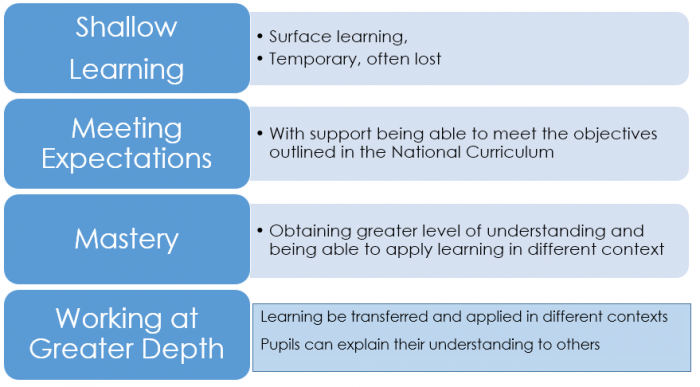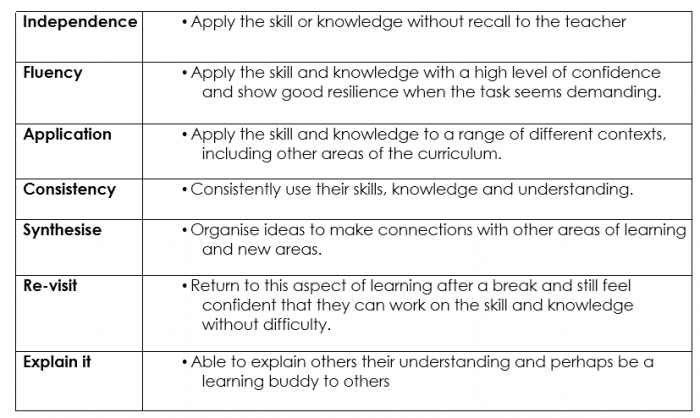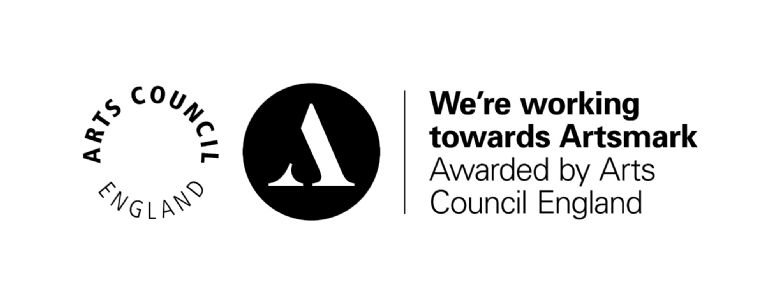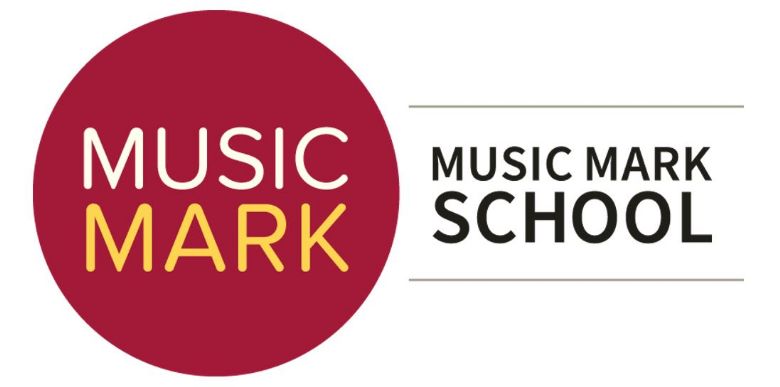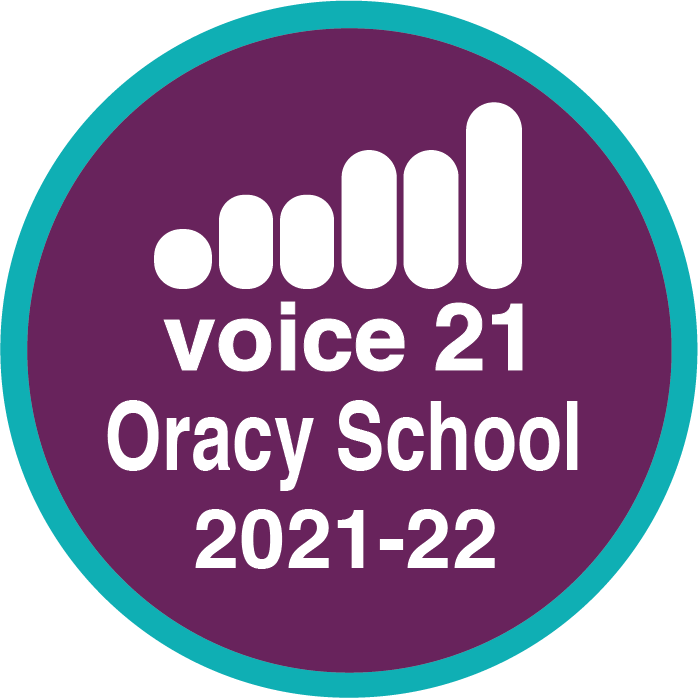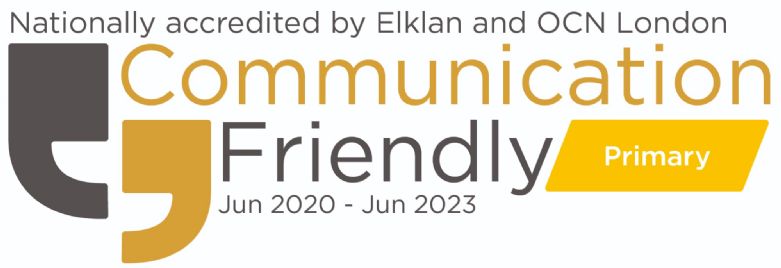Greater Depth and Rapid Grasper



At Southfields PrimarySchool we recognise that all pupils are individuals with their own strengths and weaknesses, gifts and talents and we are committed to supporting all our students: realising that all pupils need to be stretched and challenged. This academic year class teachers have been identifying and registering students who show a particular talent or flair for certain subject areas using subject specific criteria to help them make their judgments. This will usually result in ten per cent of pupils being identified in any one topic.
This diagram helps to clarify the concept of mastery and greater depth in the national curriculum:
What we do know for certain is that mastery is not:
• Mastery and greater depth – not working on content from the next year group.
• Mastery and greater depth in mathematics – not practising the same concept with bigger numbers.
• Mastery and greater depth in reading – not necessarily reading a more challenging text.
The Characteristics of mastery and greater depth in the national curriculum could therefore be summarised as:
Parents and students receive letters that inform them about the subjects in which the pupils have been identified.
Furthermore, at Southfields we aim to foster a love of learning and want pupils to become active learners. We are continuing to work hard to develop our Gifted and Talented provision available to students. These opportunities vary from differentiation and additional activities within the classroom to external trips, clubs and Master Classes and personalised intervention of promoting learning awareness in Gifted and Talented pupils through individual discussion sessions. We have a committed team of teachers involved in developing this provision.
We have named staff who oversee and develop Talented and Gifted provision in school please see co-ordinator list for more information and contact.
Please use the link below to access some of the current research and Government guidance on Talented and Gifted Pupils 
or you could use this information from the BBC site about supporting gifted and talented pupils 
We also use MENSA resources to support learning and projects please see this link
During this academic year we have worked alongside the Royal Opera House to extend pupils learning about Opera, dance and ballet, please click this link to find out more.
We have an up to date register and regular half termly pupil progress meetings if you feel your child has a gift and talent please contact the school if you feel this has not been identified. In addition to this the school will contact you if your child is added to the Gifted and Talented register where additional support will be identified to support you as a parent nuturing this talent and gift should you wish to support your child and school further.
The removal of national curriculum levels is an acknowledgement that they were not a dependable way of defining achievement. Levels were used in a different ways by different people and organisations depending on the audience.
Because of the way that schools are evaluated by Ofsted, levels also led to children being moved on at undue pace rather than developing depth of understanding. Depending on how they were used, levels could also be used to label children and become a disincentive for learning.
The new world of ‘assessment without levels’ is intended to encourage a more professional, intelligent assessment. There is a recognition that learning is neither neat nor linear. The simple attachment of a level could undermine learning as there could be gaps in specific areas of learning for a child. Progression is more focused on understanding and developing greater depth in the national curriculum than on mere progression to the next set of content.
The mastery pedagogy works on the principle that all learners, with effort, will meet expectations. It works on the premise that great teaching, based on formative assessment, particularly great questioning, is key. Precise assessment, teaching that closes any gaps, thinking about ability differently are all part of the mastery pedagogy.
The notion behind a ‘mastery level’ came about from the performance descriptors that were published, in draft, some months ago. This so called ‘mastery level’ has now been replaced in the teacher assessment information that has now been published with the phrase ‘even greater depth.’
All children should have a deep learning of key ideas/constructs and opportunities for even deeper learning (growth mindset). For some learners they will be able to access, within a construct, even greater challenge to deepen their thinking further. Mastery learning is deep learning that sticks, can be recalled over time etc. It is necessary to have deep learning in order to meet the key objectives. In essence, in order to meet the objectives securely children need to have mastered them.
The Higher Learning Potential Policy is available here.

